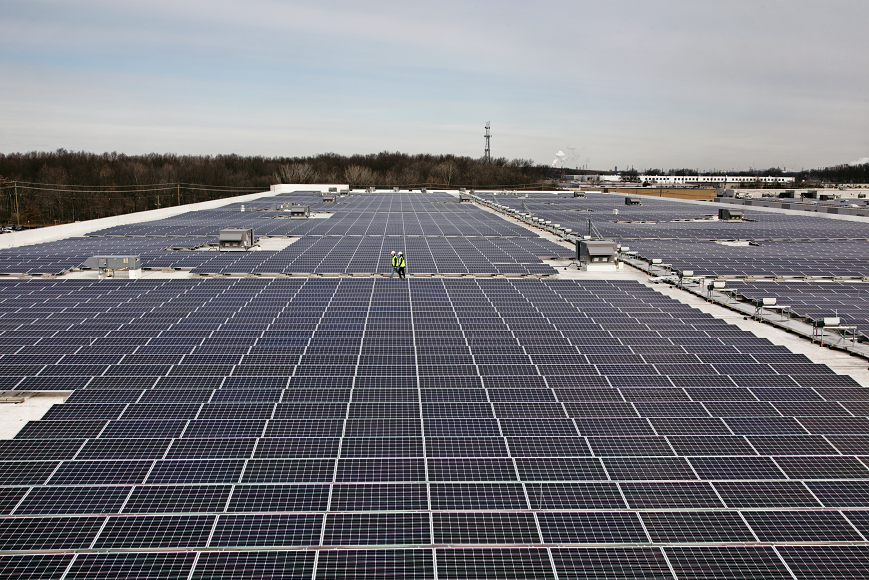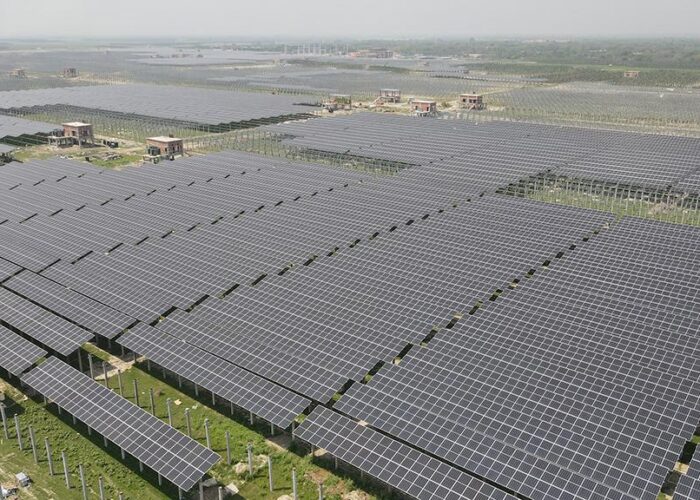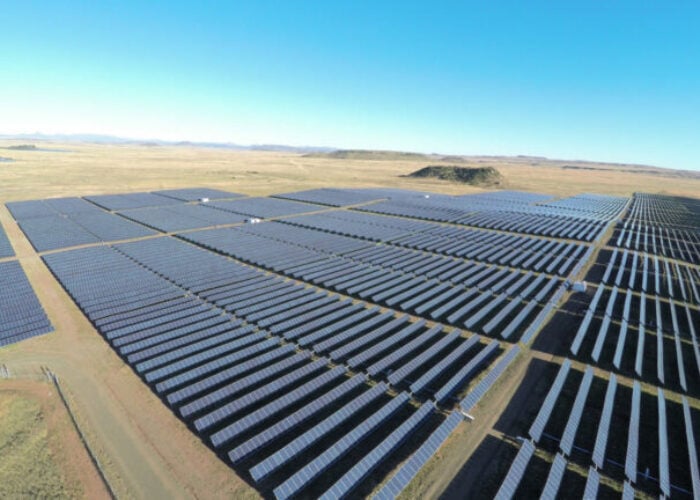
Corporations in the US are being urged to increase their adoption of renewables after a survey of businesses found appetite to do so, but warned that several organisational barriers remain.
The report, the findings of which were published on the eve of COP26, has found that while corporations are keen to boost their procurement of renewables, they remain concerned about a lack of knowledge internally and other procedural barriers.
Unlock unlimited access for 12 whole months of distinctive global analysis
Photovoltaics International is now included.
- Regular insight and analysis of the industry’s biggest developments
- In-depth interviews with the industry’s leading figures
- Unlimited digital access to the PV Tech Power journal catalogue
- Unlimited digital access to the Photovoltaics International journal catalogue
- Access to more than 1,000 technical papers
- Discounts on Solar Media’s portfolio of events, in-person and virtual
BayWa r.e. commissioned market research firm Kantar to survey hundreds of decision makers within US corporations on renewable power, highlighting how businesses in the US are responsible for nearly 60% of the country’s total power demand.
The research contributed towards the publication of BayWa r.e.’s ‘Energy Report 2021’. Central among the report’s findings is that nearly two-thirds of those surveyed (65%) said they believed it was the job of the federal government to lead on the energy transition, while just 38% said the private sector had a leading role to play.
However 65% of those surveyed also said that the Biden-Harris administration would make it easier for their business to decarbonise. While much of US President Joe Biden’s climate agenda remains enshrined within the budget reconciliation bill and therefore has been slow to progress, last week’s publishing of a Democrat supported, albeit watered down from its originally US$3.5 trillion price tag, does include several positions to advance renewables deployment in the US.
One of the foremost drivers cited in the research is a desire from corporations in the US to use renewables in order to maintain operations during grid outages, with 95% of those surveyed citing that as a driver. Certain states in the US, particularly California and Texas, has endured several high-profile incidents, caused primarily by extreme weather, of prolonged grid outages in recent years.
Around 59% of respondents said they would be investing in renewables to help reduce the carbon emissions of their business’s operations, and solar PV proved to be the most popular option for corporations intending to do so. However, energy efficiency measures were the most popular approach for businesses surveyed, with 83% stating they would be exploring work in that area.
While a majority (65%) said the cost competitiveness of renewable energy was now the core driver behind procuring renewable power, organisational and procedural barriers remain. Nearly 40% of those surveyed said a lack of knowledge internally prevented agreements from proceeding, while one-third said their businesses lacked the expertise necessary to evaluate different options open to them.
Mike Danielson, VP of BayWa r.e. Solar Projects LLC in the Americas, said that while the report highlighted the progress of corporate renewables procurement in the country, it also revealed the “serious challenges” facing the sector.
“The question remains: what do corporations need to do to get from where we are to where we need to be in order to meet the ambitious net-zero carbon goals over the next decade—the decade that matters in the fight against climate change? We know the answer: corporations need to accelerate the energy transition with more procurement and more innovation in their energy supply,” he said.
A full copy of the report’s findings can be read here.
The report’s release came in the build up to COP26, where governments, policymakers and corporations alike are aiming to secure a deal which would change the course of climate change from a “calamitous” 2.7 degrees Celsius, as UN secretary-general António Guterres described it earlier today, to 1.5 degrees Celsius, with more prolific deployment of renewables and decarbonisation of power sectors crucial to that aim.
Opening the Conference of Parties yesterday, UNFCCC executive secretary Patricia Espinosa said: “We either choose to achieve rapid and large-scale reductions of emissions to keep the goal of limiting global warming to 1.5C— or we accept that humanity faces a bleak future on this planet.
“We either choose to recognise that business as usual isn’t worth the devastating price we’re paying and make the necessary transition to a more sustainable future — or we accept that we’re investing in our own extinction,” she said
PV Tech will be covering COP26 and its fringe events extensively over the next fortnight and our coverage can be found by click on the COP26 tag.







